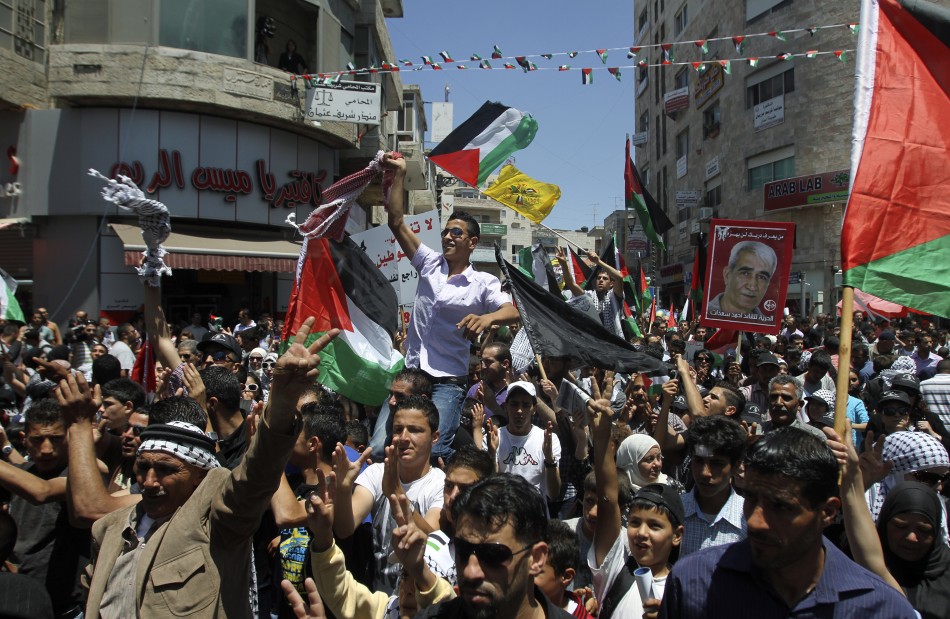Nakba Day: Thousands of Palestinians Demonstrate and Clash with IDF [SLIDESHOW]


Thousands of Palestinians have attended demonstrations to commemorate "Nakba day"
The "Nakba", which translate into "catastrophe", marks the exodus of hundreds of thousands of Palestinians who were displaced or fled their homes after the state of Israel was established in 1948, 64 years ago.
Thousands of Palestinians attended demonstrations and rallies organised in Gaza and the West Bank, but also in neighbouring countries such as Lebanon , raising Palestinians flags and black banners.
Palestinian Authority President Mahmoud Abbas warned they would never forget "the beginning of our continued hardship".
"Today, our people from all walks of life unite to commemorate the Nakba, which displaced our people - and they continue to suffer as a result," Abbas said in a speech. "Every Palestinian, man and women, [suffer] whether living under occupation or in the refugee camps."
A huge rally attended by Palestinian authority Prime Minister Salam Fayyad, was held in was organised in Ramallah at the Martyr Yasser Arafat Square
Tensions however were quick to flare up as crowds chanted anti-Israel slogans with some people also burning Israeli flags.
Clashes erupted in several areas, including the Kalandiya checkpoint between Jerusalem and Ramallah and east Jerusalem where Palestinians protesters threw stones at Israeli troops.
Reports suggest that at least 40 Palestinians have been injured and at least four arrested in East Jerusalem on suspicion of throwing stones.
In the Gaza Strip, representatives of Hamas, Fatah and other Palestinian political factions organised a joint rally.
Organisers had called on protesters to gather in the city centre of Gaza before marching towards the UN headquarters.
In Gaza City, Hamas Prime Minister Ismail Haniya said that "our message to the refugees is that we will not give up the right of return".
"We will not accept any project that abandons the right of return or affects our sacred rights to the homeland," he added.
There are about five million Palestinians and their descendants living in the West Bank, the Gaza Strip, Jordan, Lebanon and Syria.
© Copyright IBTimes 2024. All rights reserved.





